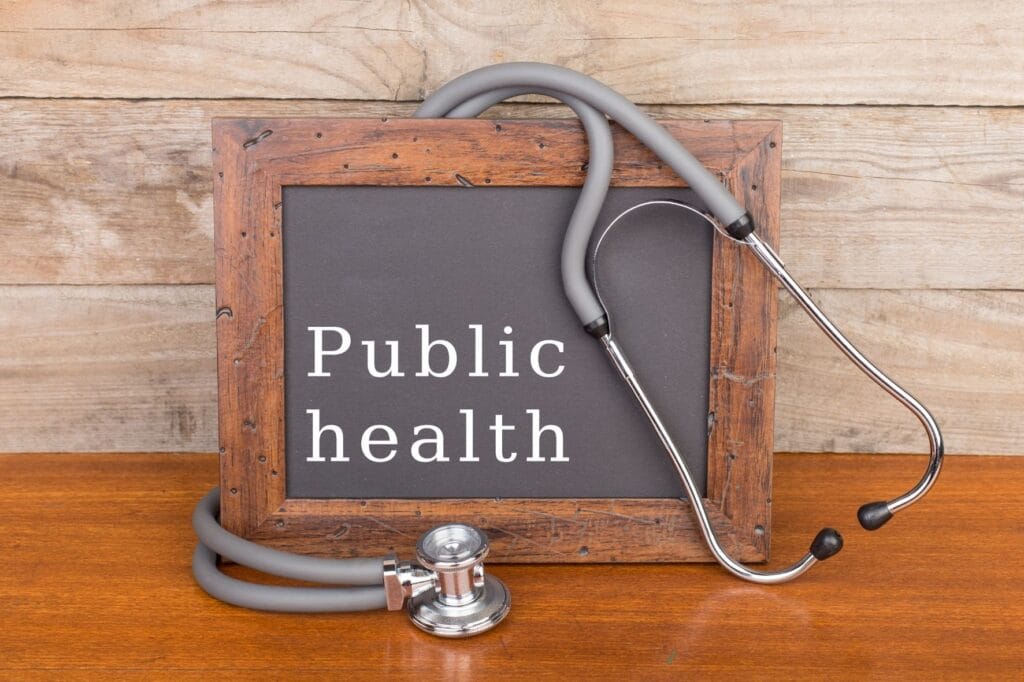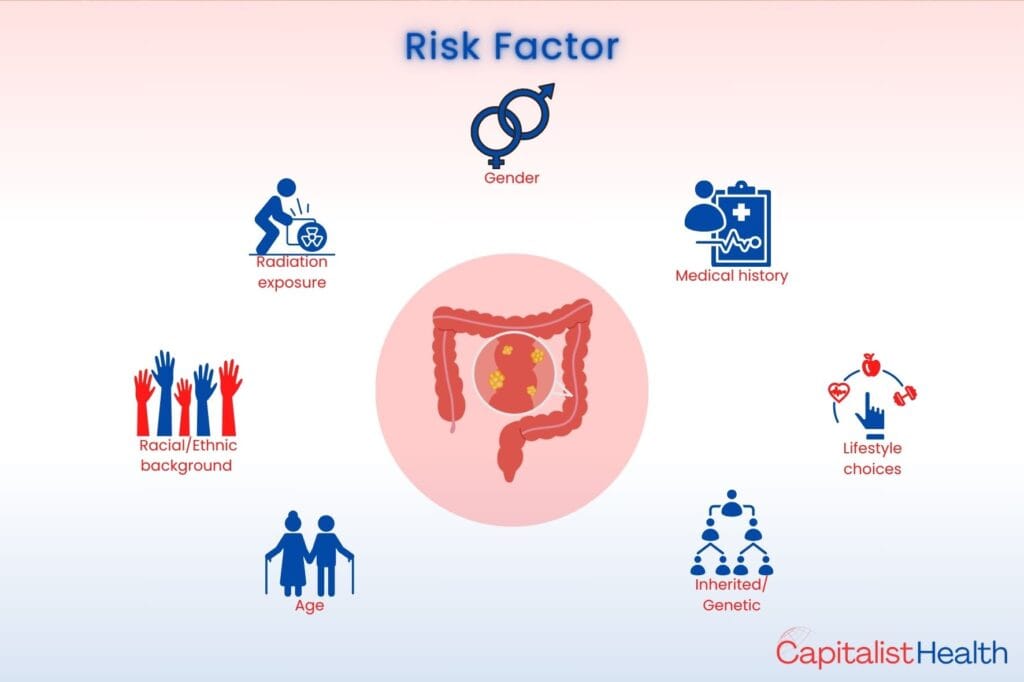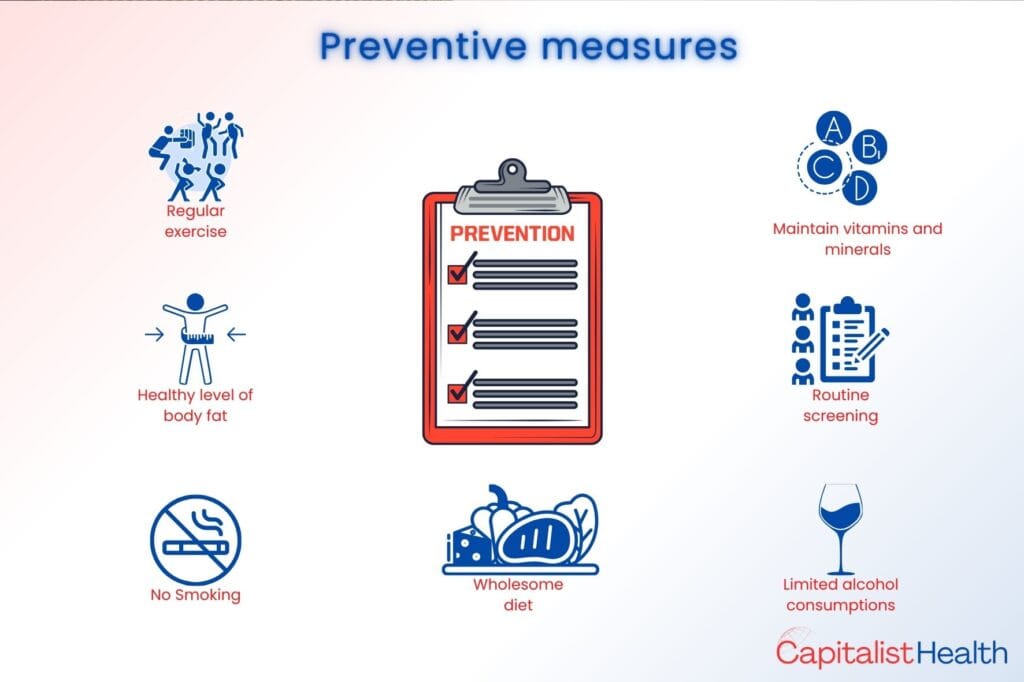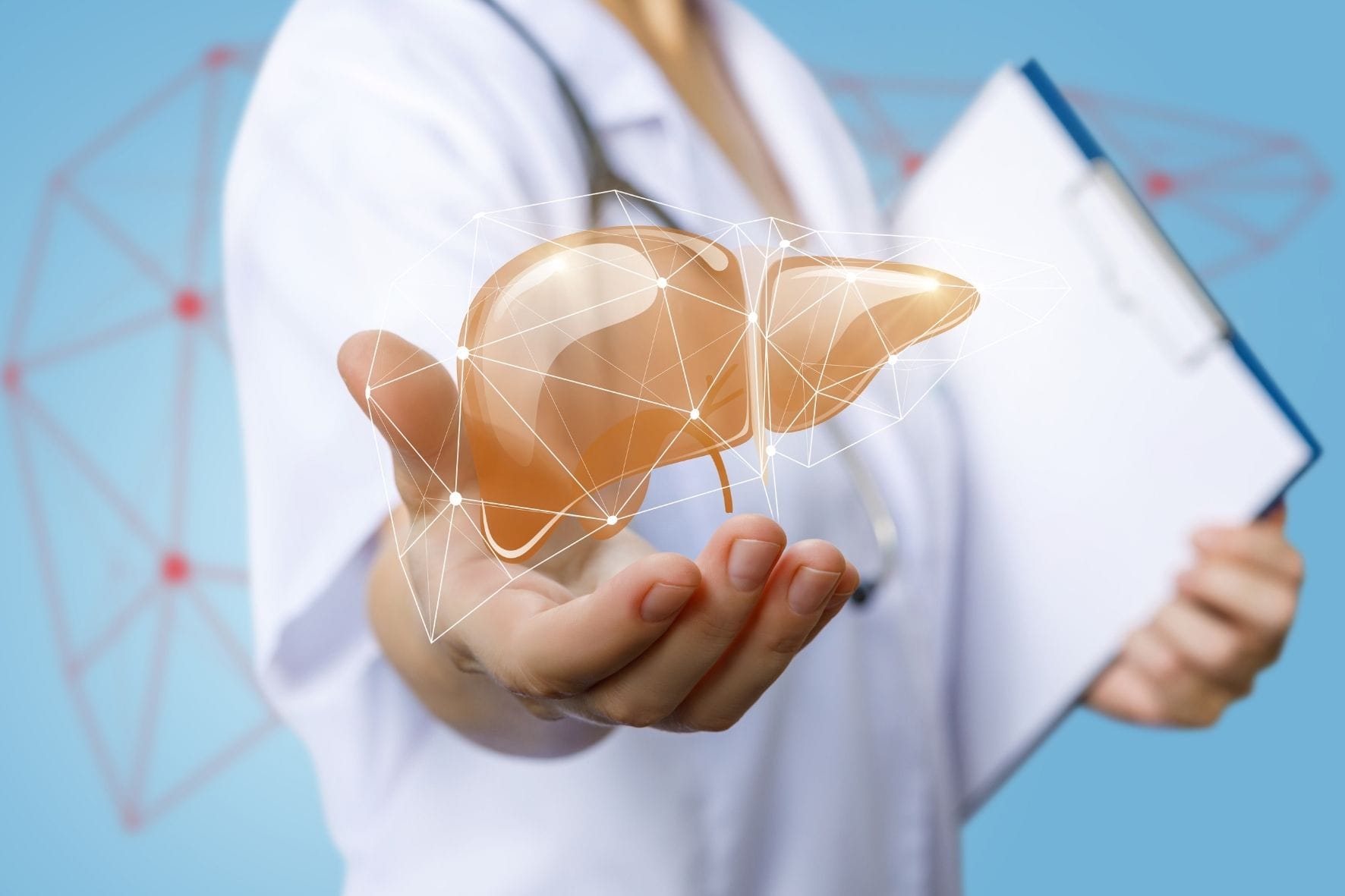Did you know that colorectal cancer is the second leading cause of cancer-related deaths worldwide — yet it’s one of the most preventable forms of cancer?
By understanding the warning signs, risk factors, and preventive strategies, you can take control of your health or help someone you care about. Whether you’re over 45, have a family history of cancer, or simply want to stay informed, this guide will equip you with the essential knowledge to take action early and potentially save lives.
Table of Contents
What Is Colorectal Cancer?
Colorectal cancer refers to cancer that begins in the colon or rectum, both parts of the large intestine and crucial sections of your digestive tract, The colon is the largest section of the large intestine, while the rectum is the segment just before the anus. It may develop in one or both areas, often starting as small, benign polyps that gradually become cancerous over time. When cancer develops in either the colon or rectum—whether simultaneously or at different times—it is referred to as colorectal cancer.
The good news? Early detection makes a huge difference.
Why Colorectal Cancer Matters: A Public Health Concern

Colorectal cancer poses a serious global threat, especially when left undetected:
Prevalence: It is the third most common type of carcinoma worldwide and the fourth most common cancer in India for both men and women, making it a major health issue across different populations.
Mortality: It stands as the second leading cause of cancer-related deaths globally, underscoring its severity.
Cancer Cases: Colorectal cancer accounts for approximately 10% of all cancer cases, highlighting its widespread impact.
Age Factor: This type of cancer predominantly affects older individuals, particularly those aged 50 and above.
Late Diagnosis: Many cases are often diagnosed at advanced stages when treatment options are limited, which can complicate recovery.
Preventive Strategies: The incidence and impact of colorectal cancer can be significantly reduced through effective primary preventive strategies, such as regular screenings and lifestyle modifications.
Lifestyle Connection: Studies have shown a strong association between colorectal cancer and various lifestyle choices, emphasizing the importance of healthy habits in reducing risk.
What Are the Risk Factors for Colorectal Cancer?

Understanding what increases risk can help you take proactive steps to reduce it.
🔹 Age
50 years and older are most at risk, though cases in younger people are rising.
🔹 Gender
Men tend to have higher fatality rates. Postmenopausal women are at increased risk of right-sided colon cancer.
🔹 Ethnicity
Certain racial and ethnic groups face a higher incidence of colorectal cancer due to genetic and environmental factors.
Sedentary lifestyle
Diets low in fiber and high in fat
Frequent consumption of processed meats
Smoking and alcohol use
🔹 Medical Conditions
Obesity
Inflammatory bowel disease (Crohn’s, ulcerative colitis)
History of polyps or previous colorectal cancer
🔹 Genetics & Family History
Lynch syndrome or familial adenomatous polyposis
A first-degree relative with colorectal cancer significantly increases your risk.
What Are The Signs & Symptoms of Colorectal Cancer?

Colorectal cancer often remains undetected in its early stages, making early diagnosis a challenge. Unfortunately, late-stage diagnosis can lead to the cancer progressing and spreading, which complicates treatment and recovery. As the disease advances, specific symptoms may begin to appear.
Recognizing these signs is crucial, as they can help facilitate an early diagnosis and improve the chances of successful treatment.
Common Symptoms to Watch For:
- Changes in Bowel Habits: Persistent alterations in your bowel habits, such as diarrhea, constipation, or narrowing of the stool, lasting more than a few days.
- Unsatisfactory Bowel Movements: If you frequently feel the urge to have a bowel movement but do not get relief after passing stool.
- Bloody Stool: Look out for fresh blood, dark blood, or tar-like discharge in your stool. Any significant changes in the color or consistency of your stool, especially if it appears dark brown or black.
- Abdominal Pain: Unexplained, persistent, or frequent abdominal pain that does not subside.
- Other Gastrointestinal Symptoms: Symptoms like bloating, a feeling of heaviness, or periodic vomiting without clear reasons.
- Anemia: Iron deficiency anemia can result from long-term blood loss.
- Fatigue: Experiencing unexplained weakness or tiredness, even after adequate rest.
- Unintentional Weight Loss: Rapid weight loss without any effort to diet or exercise.
If you notice any of these symptoms persisting over time or if they seem alarming, it’s crucial to consult a healthcare professional.
Early detection is key, as even seemingly simple symptoms can lead to the prevention or early diagnosis of colorectal cancer.
Prevention: How to Lower The Risk of Colorectal Cancer

Implementing appropriate preventive measures can significantly reduce the risk of developing colorectal cancer. Regular screenings not only help in prevention but also enable early diagnosis, which is crucial for a quick and complete recovery. It’s important to note that abnormal cell growth can take about 10-15 years to develop into cancer, making early intervention vital.
Key Preventive Measures Includes:
- Intake Of Wholesome Diet: Limit processed foods and red meat. Instead, focus on a diet rich in fruits, whole grains, and vegetables to provide essential nutrients.
- Focus on Regular Exercise: Regular moderate to intense physical activity can help lower the risk of developing precancerous polyps, which may lead to colorectal cancer.
- Maintain Ideal Weight: Maintain an ideal body fat percentage.
- Avoid Smoking and Alcohol: Refrain from smoking and alcohol consumption.
- Monitor Vitamin and Mineral Levels: Schedule regular check-ups and consider multivitamins if necessary to maintain adequate nutrient levels.
In addition to these lifestyle changes, regular screening is recommended for early detection of colorectal issues, starting at age 45, or earlier for those with a history of risk factors. Common screening tests include:
| Test | Description | Frequency |
| Fecal Occult Blood Test (FOBT) | Detects hidden blood in stool | Annually |
| Flexible Sigmoidoscopy | Examines lower colon | Every 5 years |
| Colonoscopy | Views the entire colon and removes polyps | Every 10 years |
| Stool DNA Test | Detects DNA markers for cancer | Every 3 years (if recommended) |
How Is Colorectal Cancer Diagnosed?

Diagnosing colorectal cancer involves a variety of tests, ranging from physical examinations to advanced imaging techniques. The specific tests required can vary based on the severity and stage of the disease, as well as individual health factors. Here’s an overview of the common diagnostic methods used for colorectal cancer:
- Medical History: Doctors will start by asking about your medical history, including any past health conditions, the duration and progression of symptoms, treatment history, and family history of cancer.
- Physical Examination: During a physical exam, the doctor will palpate your abdomen to check for any masses, enlarged organs, or tenderness. Normally, the abdomen feels soft and doughy, but in cases of disease, it may be stiff, hard, or tender. The examination may also include a digital rectal examination to assess the rectum’s appearance and check for any masses present.
- Stool Test: A stool test, specifically the occult blood test, is used to detect hidden blood in your stool, which can indicate the presence of cancer or polyps.
- Blood Tests: Several blood tests may be conducted, including a complete blood count (CBC), liver enzyme tests, and tumor marker tests.
- Colonoscopy or Proctoscopy: These imaging tests allow doctors to look inside the colon and rectum to identify any changes or growths.
- Biopsy: This involves taking a tissue sample for microscopic examination to check for cancerous changes in the cells.
- Imaging Tests: In addition to the above tests, various imaging techniques such as X-rays, CT scans, MRIs, ultrasounds, PET scans, and angiography may be used.
These tests help visualize the extent of cancer spread and assess its impact on surrounding tissues.
How Is Colorectal Cancer Treated and Managed?

The treatment of colorectal cancer varies significantly depending on the stage of the disease, how much it has spread, and other individual factors. Typically, the treatment plan includes several key steps:
🔹 Surgery (Primary Treatment): The Most common treatment for colorectal cancer is surgery which includes:
✅ Polypectomy: Removal of small polyps
✅ Partial colectomy: Removes affected section of colon
✅ Colostomy: Creates an opening in the abdomen for waste if the colon is removed
✅ Laparoscopic surgery: Minimally invasive
✅ Endoscopic mucosal resection
✅ Radiofrequency ablation: Destroys tumors with heat
🔹 Adjuvant Therapies: After the primary treatment, adjuvant therapies may be recommended to help complete recovery and prevent recurrence. These can include:
✅ Chemotherapy
✅ Radiation therapy
✅ Targeted therapy (e.g., bevacizumab)
✅ Immunotherapy (especially in genetic cases like Lynch syndrome)
🔹 Post-Treatment Care: In addition to these treatments, consistent and strict management of your treatment schedule is essential.
✅ Follow-up appointments
✅ Medication adherence
✅ Nutritional planning
✅ Physical rehabilitation
✅ Mental health support
Let’s Empower Ourselves and Each Other Against Colorectal Cancer !!

Understanding colorectal cancer is crucial for several reasons. Early detection greatly increases the chances of successful treatment and recovery. By staying informed about risk factors, symptoms, and the importance of regular screenings, each of us can take meaningful steps toward better health. Knowledge doesn’t just save lives—it empowers action and sparks open conversations about health topics that are too often avoided.
Colorectal cancer touches countless lives. But through shared experiences, open dialogue, and mutual support, we can create a space where no one feels alone. Whether you’re a survivor, a caregiver, or someone facing this diagnosis—your story matters.
Together, we have the power to:
✅ Raise awareness
✅ Educate others
✅ Build a compassionate and inclusive community
Let’s unite in understanding and empathy because no one should have to face colorectal cancer in silence. Join the conversation, spread the word, and let’s make a difference—together.
Also, are you curious to learn about cervical cancer and how to prevent it?
Don’t miss our in-depth guide: Understanding Cervical Cancer: Top Essential Insights and Prevention Strategies You Need to Know learn the key symptoms, risk factors, and how early screening can save lives, by clicking here !!



